The planet's habitability (CNRS Humanities & Social Sciences thematic priority)
Find out more about the research being carried out at CNRS Humanities & Social Sciences and its laboratories on the theme of the planet's habitability.
The issues associated with climate change and broader environmental change involve all CNRS Humanities & Social Sciences disciplines. These include the issues perceived, described and taken into account (or not); envisaged and implemented scenarios, the study of their transferability levels and possible generalisation; analysis of the forms of vulnerability of individuals and groups and of inequalities and the way these structures and are structured by current and future developments. The primary focus is on just transitions, namely the need for contemporary societies to face the consequences of climate change and broader environmental change by adapting. This can be achieved through the development of economies that are sustainable from an environmental standpoint but also economically, culturally, politically and in social terms. This work involves long and very long-term studies which means it is possible to learn from changes to ancient societies and even their disappearance; comparative approaches suited to the wide range of possible applications given the profound territorialisation of situations; the interplay of scales given that local-level changes and solutions dovetail with their global counterparts; micro-local and experiential analyses aimed at understanding the deep-rooted mechanisms of usage and the large datasets required to best understand processes and create projections of possible trajectories; the study of controversies and the forms of expertise involved in decision-making, etc.
The accepted meanings of shared sciences range from the involvement of populations in data collection to the co-production of science through knowledge-sharing mechanisms and are also strongly involved in work on this priority subject for the Institute. This priority means numerous interdisciplinary collaborations with other sciences are involved.
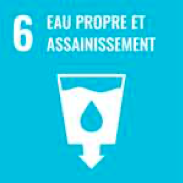
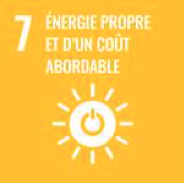
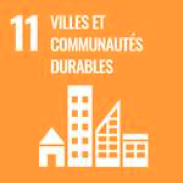
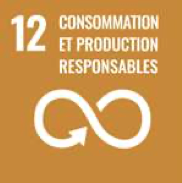
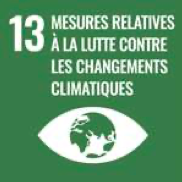
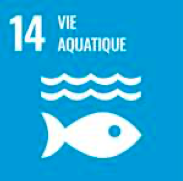
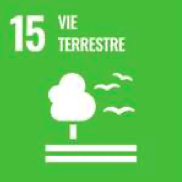
Research centers and networks
CNRS Humanities & Social Sciences laboratories
- Ambiances Architectures Urbanités (AAU)
- Acteurs, ressources et territoires dans le développement (ART-DEV)
- Centre de sociologie des organisations (CSO)
- Centre d’études européennes et de politique comparée
- Centre d’études turques, ottomanes, balkaniques et centrasiatiques (CETOBaC)
- Centre d’histoire sociale des mondes contemporains (CHS)
- Centre de REcherche et de Documentation des Amériques (CREDA)
- Centre de recherches historiques (CRH)
- Centre Max Weber (CMW)
- Chine, Corée, Japon (CCJ)
- Cités, Territoires, Environnement et Sociétés (CITERES)
- Droit et changement social (DCS)
- Droits international, comparé et européen (DICE)
- Espaces et SOciétés (ESO)
- Étude des structures, des processus d’adaptation et des changements de l’espace (ESPACE)
- Géographie-cités
- Identité et Différenciation de l’Espace, de l’Environnement et des Sociétés (IDEES)
- Institut d’histoire moderne et contemporaine (IHMC)
- Institut de l’Ouest : Droit et Europe (IODE)
- Institut des sciences juridique et philosophique de la Sorbonne (ISJPS)
- Laboratoire Aménagement Économie Transports (LAET)
- Laboratoire d’anthropologie sociale (LAS)
- Laboratoire Architecture Ville Urbanisme Environnement (LAVUE)
- Laboratoire d’ethnologie et de sociologie comparative (LESC)
- LAboratoire DYnamiques sociales et recomposition des espaces (LADYSS)
- Laboratoire Interdisciplinaire des Énergies de Demain (LIED)
- Laboratoire Interdisciplinaire Sciences, Innovations, Sociétés (LISIS)
- Laboratoire Interdisciplinaire Solidarités, Sociétés, Territoires (LISST)
- Laboratoire Technique, Territoires et Sociétés (LATTS)
- LIttoral ENvironnement et Sociétés (LIENSs)
- Migrations Internationales, Espaces et Sociétés (MIGRINTER)
- Passages
- Pôle de Recherche pour l’Organisation et la diffusion de l’Information Géographique (PRODIG)
- Sciences, Normes et Démocratie (SND)
- Temps, espaces, langages, Europe méridionale, Méditerranée (TELEMMe)
- Théoriser et Modéliser pour Aménager (ThéMA)
- Transitions Énergétiques et Environnementales (TREE)
Laboratories in other countries
Junior professor's chair
- In 2022 CNRS Humanities & Social Sciences provided a junior professor's chair on "Earth habitability and just transitions" in 2022. This led to the recruitment of Ms N. Martin who was assigned to the Institute of Legal and Philosophical Sciences of the Sorbonne (ISJPS) in 2023.
Innovation et valorisation
- Chaire industrielle REASONS - Transitions énergétiques et environnementales (TREE)
CNRS Humanities & Social Sciences post-doctorate
- The CNRS Foundation is financing a post-doctorate position in environmental geography/spatial modelling at the Western Institute: Law and Europe. This post-doctorate position is entitled "Évaluation des outils de gestion foncière pour une transition agroécologique" (Evaluation of land management tools for an agro-ecological transition) and is co-supervised by Ms Langlais and Mr Houet from the Coastline, Environment, Remote Sensing, Geomatics unit (LETG) in 2023-2024.
Research Program
- CNRS Humanities & Social Sciences is involved in the IRIMA Priority Research Programme and Equipment IRIMA Priority Research Programme and Equipment or PEPR with funding from the Investments for the Future programme PIA4. Soraya Boudia leads the programme for the CNRS.
- CNRS Humanities & Social Sciences is involved in the TRANSFORM Priority Research Programme and Equipment or PEPR with funding from the Investments for the Future programme PIA4. Frédérique Aït-Touati and Wolfgang Cramer leadf the programme for the CNRS.
- CNRS Humanities & Social Sciences is involved in the VDBI Priority Research Programme and Equipment or PEPR with funding from the Investments for the Future programme PIA4. Jean-Yves Toussaint and Gilles Gesquières lead the programme for the CNRS.
Networks
- Research Network (GDR) on methodological approaches to the dynamics of agrobiodiversity: field studies, networks, models (ReSoDiv) (CNRS Ecology & Environment is the main network leader)
- GDR on the Arctic - important issues for the environment and societies (AREES) (CNRS Ecology & Environment is the main network leader)
- The CLIMALEX Research Network (GDR) on interdisciplinary views of the law, regulation and scientific knowledge as regards climate change
- The Scientific Interest Group of Maritime History & Sea Sciences
SOSI - Open Monitoring of Societies and their Interactions
- Observatoire transdisciplinaire des changements environnementaux et sociaux de la zone Sebikotane – Diamniadio (Sénégal)
Theme linked to the CNRS Objectives and Performance Contract (COP)
The following societal challenges
- climate change,
- territories of the future,
- energy transition,
- health
- environment.